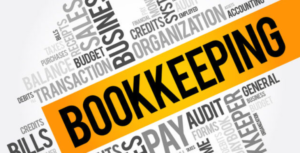As the financial year draws to a close, it’s crucial to ensure that you’re well-prepared for tax time. Whether you’re a business owner or an individual taxpayer, nobody wants to pay more tax than necessary. Here are detailed tips and advice to help you minimize your tax liability legally.
Why Seek Professional Tax Planning Advice?
- Professional tax planning helps you utilize all possible deductions, offsets, and credits applicable to your situation.
- Expert advice can implement strategies to legally reduce your tax liability, providing significant financial savings.
- With the financial year ending soon, now is the perfect time to review your financials and optimize your tax position.
Comprehensive Tax Tips and Action Points
FOR BUSINESSES
1. Purchase Business Assets:
- Instant Asset Write-off: The $20,000 instant asset write-off has been extended until 30 June 2025. This allows small businesses to claim an immediate deduction for assets first used or installed ready for use by this date. Assets over $20,000 can be included in the general small business pool and depreciated at 15% in the first year and 30% in subsequent years.
- Five-Year Lockout Rule Suspension: The suspension of the five-year lockout rule for small businesses opting out of simplified depreciation will also extend to 30 June 2025.
2. Comply with Division 7A:
- Avoid Deemed Dividends: Ensure personal expenses paid by your company are handled correctly to avoid them being treated as deemed dividends to shareholders.
3. Dispose of Obsolete Equipment:
- Immediate Write-off: Review your asset register and scrap any obsolete machinery or equipment before 30 June to claim an immediate deduction.
4. Conduct a Stocktake:
- Write Off Obsolete Stock: Identify slow-moving or obsolete stock and write it off before 30 June.
5. Pre-pay Business Expenses:
- Claim Future Expenses: Small businesses can claim deductions for certain pre-paid expenses incurred within the next 12 months, such as rent, insurance, and subscriptions.
6. Enhance Cyber Security:
- Essential Eight Strategies: Protect your business by implementing the Essential Eight strategies developed by The Australian Cyber Security Centre (ACSC).
7. Skills & Training Boost:
- Additional Deduction: Until 30 June 2024, claim an additional 20% deduction for eligible training expenses provided by registered providers to your employees.
Pay Super Contributions Early:
- Early Payment Benefit: Pay employee super contributions before 30 June to claim this year’s deduction. Payments after this date can only be claimed in the next financial year.
9. Review Your Business Structure:
- Tax Efficiency: Assess your business structure to ensure it remains tax-efficient and suitable for your growth plans. Consult with us before 30 June for personalized advice.
10. Payroll Tax Compliance:
- Subcontractor Payments: Review payments to subcontractors to ensure compliance with payroll tax obligations and avoid unnecessary penalties.
FOR TRUST
1. Review Trust Deeds:
- Compliance and Validity: Ensure your trust distributions comply with the deed requirements and check the Appointer’s suitability.
2. Minor Distributions:
- Tax-Free Distribution: Consider distributing up to $416 tax-free to minors under 18 years old.
For Investments & Capital Gains Tax (CGT):
1.Correct Rental Deductions:
- Accurate Expense Claims: Ensure rental property expenses are claimed accurately for the rental period.
2. Tax Depreciation Schedules:
- Maximize Deductions: Engage a quantity surveyor for a tax depreciation schedule to maximize property deductions.
3. Optimize CGT:
- Include All Costs: When calculating CGT, include all relevant costs (purchase price, capital improvements, stamp duty, etc.) to minimize tax payable.
4. Plan CGT Events:
- Timing Matters: Consider deferring asset sales until after 30 June for optimal tax implications.
5. 50% CGT Discount:
- Long-term Assets: Utilize the 50% discount for assets held over 12 months.
6. Transfer Investments:
- Family Income Strategy: Transfer income-earning assets to lower-income family members or spouses to reduce tax liability.
FOR INDIVIDUALS
1. Upcoming Tax Rate Changes:
- Future Planning: Be aware of tax rate reductions effective from 1 July 2024 to plan for the next financial year.
2. Super Contributions:
- Voluntary Contributions: Consider making additional super contributions within the concessional cap, increasing to $30,000 from 2025.
3. Salary Packaging:
- FBT-exempt Items: Package items like laptops or phones used predominantly for work to reduce taxable income.
4. Charitable Donations:
- Tax Deductible Gifts: Donations to registered charities made before 30 June are tax-deductible.
5. Home Office Deductions:
- New Guidelines: Comply with updated guidelines for claiming work-from-home expenses to ensure accurate claims.
6. Income Protection Insurance:
- Tax Deductible: Review your coverage and consider increasing it if necessary. This insurance is tax-deductible.
7. Prepay Expenses:
- Advance Deductions: Prepay deductible expenses like loan interest or professional memberships to bring forward deductions.
8. Optimize Tax Offsets:
- Claim Eligible Offsets: Ensure you claim all applicable tax offsets, such as the low-income offset or spouse super contributions.
9. Delay Income:
- Income Deferral: Postpone receiving income until after 30 June to reduce this year’s tax liability, especially for bonuses or other one-time payments.
10. Motor Vehicle Log Book:
- Maintain Records: Start a new log book for 2024FY if needed for tax purposes, especially if you’ve purchased a new vehicle or your current log book is over five years old.
11. Carry Forward Contribution Caps:
- Maximize Super Savings: Use unused super contribution caps from the past five years to maximize future contributions. You’re eligible if you have a total superannuation balance under $500,000 at the previous financial year’s end.
Personalized Tax Advice
This list offers a general overview of common tax-saving strategies. For personalized advice tailored to your specific situation, contact the team of tax accountants at the TAXATION. We’re here to help you navigate the complexities of tax planning and ensure you make the most of every available opportunity.


















